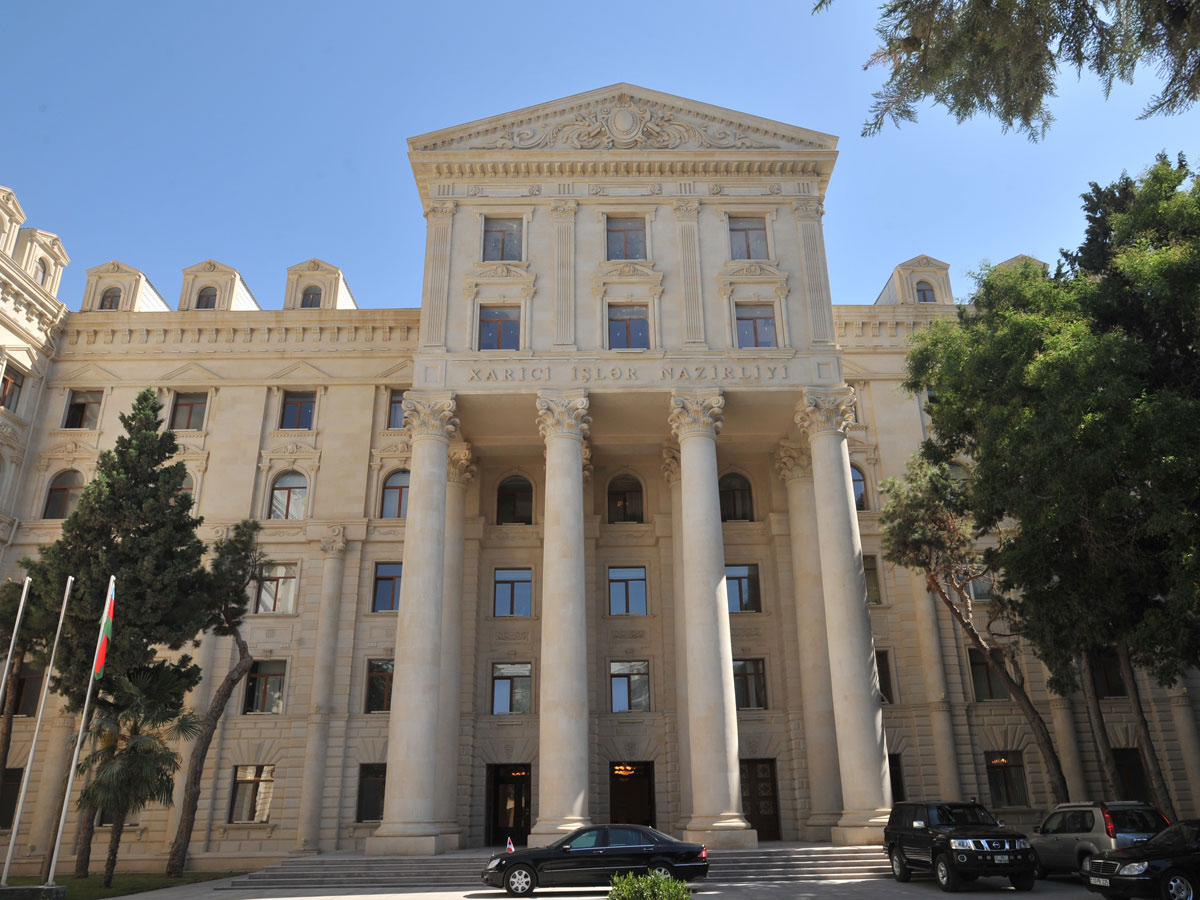Baku, Azerbaijan, Feb. 17
Trend:
Permanent Mission of the Republic of Azerbaijan to the OSCE has raised the issue on Armenia’s intention to hold an illegal “referendum” in the occupied Azerbaijani territories during the OSCE Permanent Council meeting, said Azerbaijan’s Foreign Ministry in a message Feb. 17.
According to the press reports, on Feb. 20, 2017, Armenia plans to conduct so-called “referendum on constitutional changes” in the puppet illegal regime it has established in the occupied Azerbaijani territories, says the statement of the Azerbaijani permanent mission.
“The Ministry of Foreign Affairs of the Republic of Azerbaijan reiterates that the illegal regime established by Armenia in the temporarily occupied territories of Azerbaijan is ultimately nothing other than the product of aggression and occupation. It is under Armenia’s direction and control and survives by virtue of its military, political, financial and other support, as was confirmed by the European Court of Human Rights in its judgement of 16 June 2015 on the case of Chiragov and others v. Armenia,” says the statement. “This provocative step, as well as Armenia’s attempts to change the name of the Nagorno-Karabakh region, the integral part of Azerbaijan, is yet another clear manifestation that Armenia is not genuinely interested in seeking a political settlement of the armed conflict.”
“Instead, Armenia pursues the path of escalation, undertakes consistent measures to consolidate the results of its occupation policy and to maintain unacceptable and unsustainable status quo, undermines efforts for the peaceful resolution of the conflict through substantive talks, illegally changes the demographic, cultural and physical character of the occupied territories, engages in economic and other activities, including transfer of Armenian population into these territories with the ultimate goal of imposing a fait accompli situation,” according to the statement. “By such actions Armenia also undermines and puts under jeopardy the regional and international peace and security. The principled basis for the settlement of the conflict is laid down in the United Nations Security Council resolutions 822(1993), 853(1993), 874(1993) and 884(1993) and the UN General Assembly resolution 62/243 (2008), which condemn the use of force against Azerbaijan and occupation of its territories and reaffirm the sovereignty and territorial integrity of Azerbaijan and the inviolability of its internationally recognized borders.”
In those resolutions, the UN Security Council reaffirmed that the Nagorno-Karabakh 2 region is an inalienable part of Azerbaijan and demanded immediate, complete and unconditional withdrawal of the occupying forces from all occupied territories of Azerbaijan, according to the statement.
“The illegal “referendum” constitutes a clear violation of the Constitution of the Republic of Azerbaijan and the norms and principles of international law, and, therefore, has no legal effect whatsoever. This so-called “referendum” is being conducted in the seized lands under situation created through the use of force and threat of force against the territorial integrity of Azerbaijan by Armenia and accompanied by the notorious practice of ethnic cleansing and other flagrant violations of the norms and principles of international law,” says the statement. “We call upon the international community to reject this fabricated illegal “referendum” exercise and to exert political and diplomatic pressure on Armenia with a view to drop its futile attempts to mislead its own people and the wider international community, cease its policy of occupation and annexation, engage constructively in the conflict settlement process and comply with its international obligations.”






